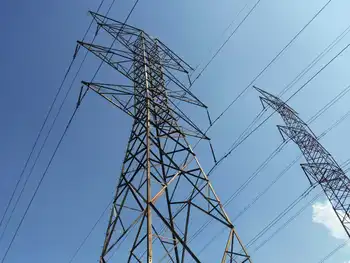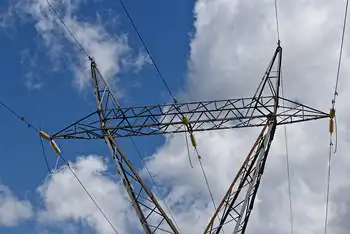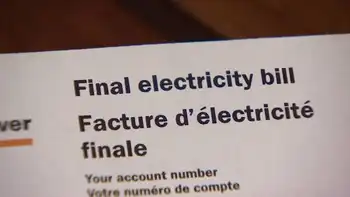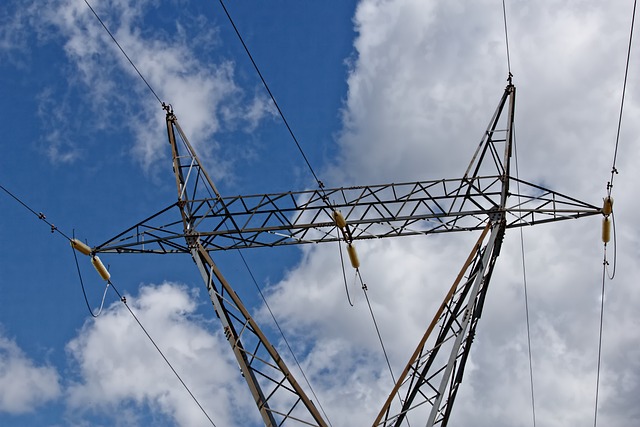France hopes to keep Brussels sweet with new electricity pricing scheme

Substation Relay Protection Training
Our customized live online or in‑person group training can be delivered to your staff at your location.

- Live Online
- 12 hours Instructor-led
- Group Training Available
France Electricity Pricing Mechanism aligns with EU rules, leveraging nuclear energy and EDF profits, avoiding Contracts for Difference, redistributing windfalls to industry and households, targeting €70/MWh amid electricity market reform and Brussels oversight.
Key Points
A framework to keep power near €70/MWh by reclaiming EDF windfalls and redistributing them under EU market rules.
✅ Targets average price near €70/MWh from 2026
✅ Skims EDF profits above €78-80 and €110/MWh thresholds
✅ Aligns with EU rules; avoids nuclear CfDs and state aid clashes
France has unveiled a new electricity pricing mechanism, hoping to defuse months of tension over energy subsidies with Brussels and its neighbors.
The strain has included a Franco-German fight over EU electricity reform with Germany accusing France of wanting to subsidize its industry via artificially low energy prices, while Paris maintained it should have the right to make the most of its relatively cheap nuclear energy. That fight has now been settled.
On Tuesday, the French government presented a new mechanism — complex, and still-to-be-detailed — to bring the average price of electricity closer to €70 per megawatt hour (MWh) as of 2026, amid Europe's electricity market revamp efforts.
"The agreement has been defined to comply with European rules and avoid difficulties with the European Commission," said France's Economy and Finance Minister Bruno Le Maire, noting that France had ruled out other "simpler" options that would have caused tension with Brussels.
For example, France has not yet envisaged the use of state-backed investment schemes called Contracts for Difference (CfD), which were the main source of discord in talks with Germany on the electricity market reform and the EU push for more fixed-price contracts in generation. The compromise agreed by EU ministers last month gives the Commission the power to monitor CfDs in the nuclear sector.
"France wanted to limit as much as possible the European Commission's nuisance power," said Phuc-Vinh Nguyen, an energy expert at the Jacques Delors Institute think tank in Paris.
The announcement came weeks after French President Emmanuel Macron promised that France would "take back control" of its electricity prices to allow its industry to make the most of the country's relatively cheap nuclear energy.
Germany, by contrast, has moved to support energy-intensive industries with an industrial electricity subsidy, underscoring the policy divergence.
“The price of electricity has always been a major competitive advantage for the French nation, and it must remain so,” Le Maire said.
Under the new mechanism, part of a broader deal on electricity prices between the state and EDF, the government will seize EDF profits above certain thresholds and redistribute them directly to industry and households to bring prices closer to the desired level. Specifically, the government will redistribute 50 percent of EDF’s additional profits if prices rise above €78-€80 per MWh, and 90 percent of extra profits if prices rise above €110 per MWh.
The move also marks a new step in the government's power grab at EDF, after the company was fully nationalized earlier this year.
For years, France has been discussing an EDF reform with the Commission in order to address concerns by Brussels regarding disguised state aid to the company. In particular, the Commission wanted assurances that any state aid given to nuclear would be kept separate from those parts of the business subject to competition, such as renewable energy development.
An economy ministry official close to Le Maire argued that the new pricing mechanism would settle matters with Brussels on that front. A Commission spokesperson said Brussels was in contact with France on the file, but declined further comment.
The mechanism will replace the existing EU-mandated energy pricing mechanism, dubbed ARENH, which was set to expire at the end of 2025, and which has forced EDF to sell some of its electricity to competitors at a fixed low price since 2010, and comes amid contested electricity market reforms at EU level.
The new system could benefit EDF because it won't be bound to sell energy at a lower price, but instead will be allowed to auction off its energy to competitors. On the other hand, the redistribution system would deprive the company of some profits when electricity prices are higher. No wonder, then, that negotiations between the government and EDF have been "difficult," as Le Maire put it.











